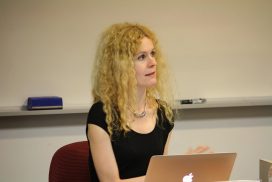Venue
Start
End
Speaker(s)/Moderator(s)
Downloads
Dissenting Opinions and the Design of International Courts and Tribunals
Introduction

Dissenting opinions are a regular feature of most international courts and tribunals. The International Court of Justice (ICJ)—and its predecessor, the Permanent Court of International Justice (PCIJ)—the International Tribunal for the Law of the Sea (ITLS), the International Criminal Court, the International Criminal Tribunal for the Former Yugoslavia, the European Court of Human Rights, the Inter-American Court of Human Rights, the Iran-United States Claims Tribunal, and the ICSID Convention all allow dissenting opinions. Contrarily, the Court of Justice of the European Union (CJEU) disallows dissenting opinions, and dissents are heavily discouraged in the adjudicative bodies of the World Trade Organization (WTO). The specific provisions on dissenting opinions are also different from one adjudicative mechanism to the next. For instance, while the ICSID Convention explicitly provides that an arbitrator ‘may attach his individual opinion to the award, whether he dissents from the majority or not, or a statement of his dissent’, in the WTO, individual opinions can only be expressed on condition that they be anonymous. The presentation explored dissenting opinions as a design element of international courts and tribunals. It critically assessed arguments that have been advanced in favour of dissenting opinions and against them, taking account of the respective contexts of different adjudicative systems. It argued that dissenting opinions are an important element of transparency of international decision-making processes, whether issued by publicly appointed judges or party-appointed arbitrators. Although dissenting opinions can be used strategically for reappointment and so appear to impact the adjudicators’ independence, this is also true of other elements of transparency, such as open voting. The presentation aimed to draw the fine line between the desirability of dissenting opinions and requirements of independence in the design of international courts and tribunals.
About the Speaker

Catharine TITI
Research Scientist (tenured),
French National Centre for Scientific Research (CNRS) & CREDIMI, Law Faculty,
University of Burgundy
CATHARINE TITI is Research Scientist (tenured) at the French National Centre for Scientific Research (CNRS) and Member of the CREDIMI, Law Faculty of the University of Burgundy. She is Co-Chair of the ESIL Interest Group on International Economic Law and Member of the International Law Association (ILA) Committee on the Rule of Law and International Investment Law. She co-directs the research project The impact of international investment agreements on FDI flows financed by the French Ministry of Justice (2017–19). Catharine holds a PhD from the University of Siegen in Germany (Summa cum laude). She has previously worked at the University Paris II Panthéon-Assas and as a consultant at the United Nations Conference on Trade and Development (UNCTAD). She has published extensively in international law journals, such as Arbitration International, European Journal of International Law and Journal of World Investment & Trade, and she is a member of the Editorial Committee of the Yearbook on International Investment Law & Policy (OUP). Her monograph The Right to Regulate in International Investment Law (Nomos & Hart) was published in 2014. In 2016, Catharine received the prestigious Smit-Lowenfeld Prize of the International Arbitration Club of New York for the best article published in the field of international arbitration.

